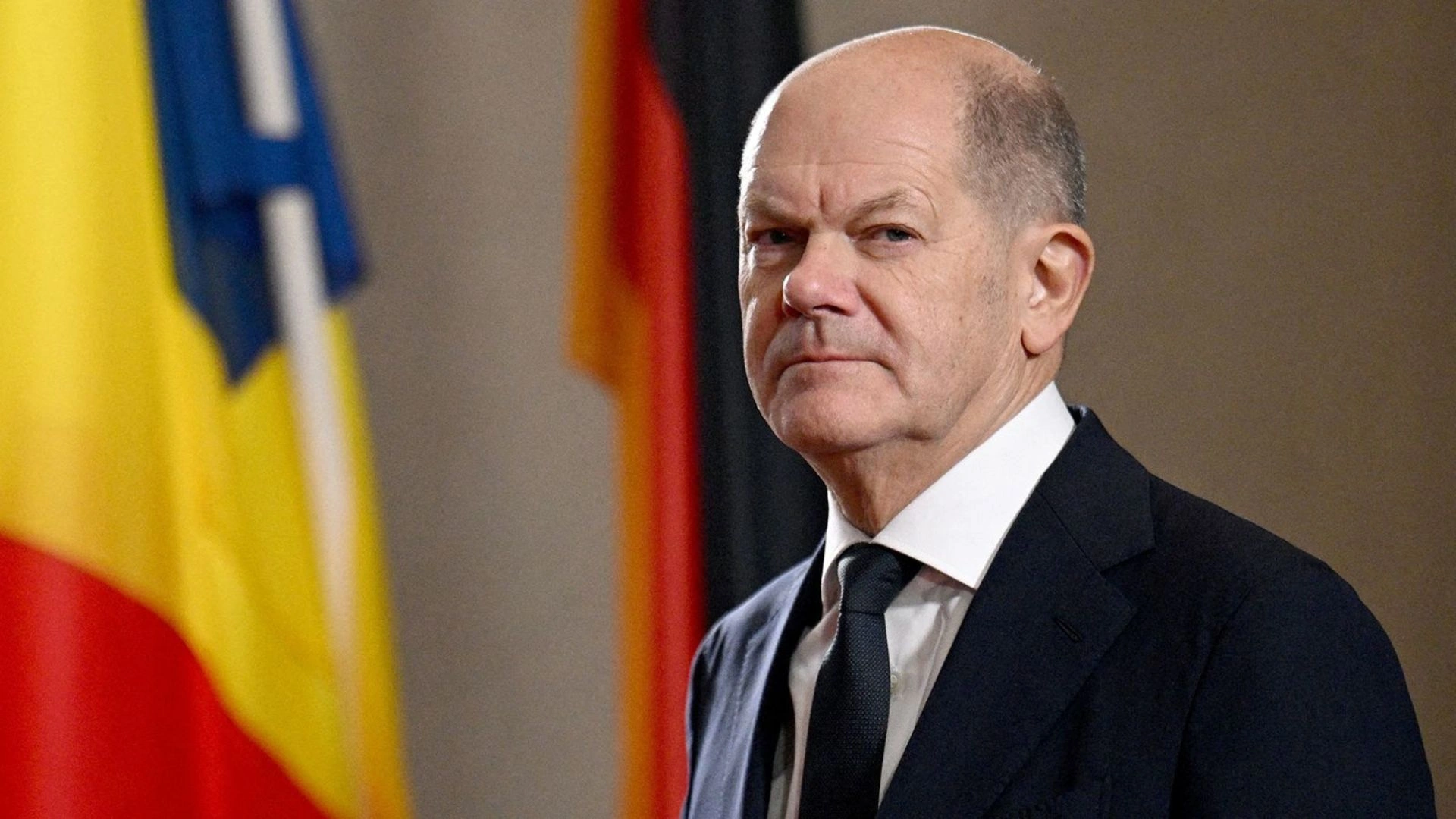German Chancellor Olaf Scholz has accused Friedrich Merz, the man expected to succeed him after next month’s election, of making an “unforgivable mistake” after the far-right Alternative für Deutschland (AfD) party backed Merz’s controversial plans to restrict migration. Scholz’s minority government has accused Merz of breaking a longstanding political firewall against the far-right populists.
Merz presented two non-binding motions to parliament aimed at boosting security measures and closing all of Germany’s land borders to irregular migration. On Wednesday, the parliament narrowly voted in favor of one of these motions, which Merz described as his “five-point plan” to end irregular migration. The vote saw 348 MPs in favor, 345 against, and 10 abstaining. The plan proposes turning asylum seekers and other migrants back at the border, a move that Scholz’s Social Democrats and the Greens argue contravenes both German and EU law on refugees.
The leader of the opposition CDU/CSU conservative alliance, which is leading the polls before the February 23 election, has shifted the debate on migration policy to the right. This shift appears to be in response to a recent knife attack in which two people were killed. The main suspect, a 28-year-old Afghan man, had been receiving psychiatric treatment and was due to be deported, but the measure had been delayed due to bureaucratic obstacles.
The attack was the latest in a string of incidents, including a deadly SUV attack in Magdeburg last month that killed six people and injured 300. An unusually heated debate preceded the vote, with Scholz attacking Merz for “effectively cancelling the fundamental agreement of our republic in the heat of the moment” by relying on the support of the anti-immigrant, pro-Kremlin AfD. Scholz called this an “unforgivable mistake.”
Robert Habeck, the deputy chancellor and the Greens’ candidate for chancellor, urged Merz not to vote with racists, calling it unnecessary and ill-advised. Merz, however, stated that getting his plans over the line with the help of the AfD would be merely “a last resort.” He acknowledged that the thought of “jubilant and smirking AfD MPs” caused him discomfort.
AfD parliamentary leader and chancellor candidate Alice Weidel, who was pictured laughing and hugging party members after the result, said the so-called firewall was nothing more than an anti-democratic cartel agreement. She added that Merz’s migration plan had been “copied from us.”
Merz intends to put a draft migration bill to parliament on Friday, furthering the existing measures already passed. While it does not have the chance of becoming law until after the election, Merz could be well placed to get it through if he becomes chancellor.
According to a poll by Insa, 66% of Germans support Merz’s plans, including 56% of supporters of Scholz’s Social Democratic Party (SPD). However, both the CDU/CSU and SPD have fallen in the polls in recent days, while the AfD gained four percentage points.
Opponents of Merz’s proposals include the leaders of the Protestant and Catholic churches in Germany. In a joint letter addressed to Merz, they warned of the dangers of breaking the long-held taboo of not working with the AfD. They expressed their dismay at the “timing and tone” of the debate, warning it was likely to “defame all migrants living in Germany and stir up prejudice.” They added that the debate did not contribute to solving the existing challenges.
The controversy surrounding Merz’s migration plan and the support it received from the AfD has sparked significant debate in Germany. As the election approaches, the implications of this political shift and the potential impact on Germany’s migration policies remain to be seen. The outcome of the election will likely shape the future direction of the country’s approach to migration and its relationship with far-right populist parties.























